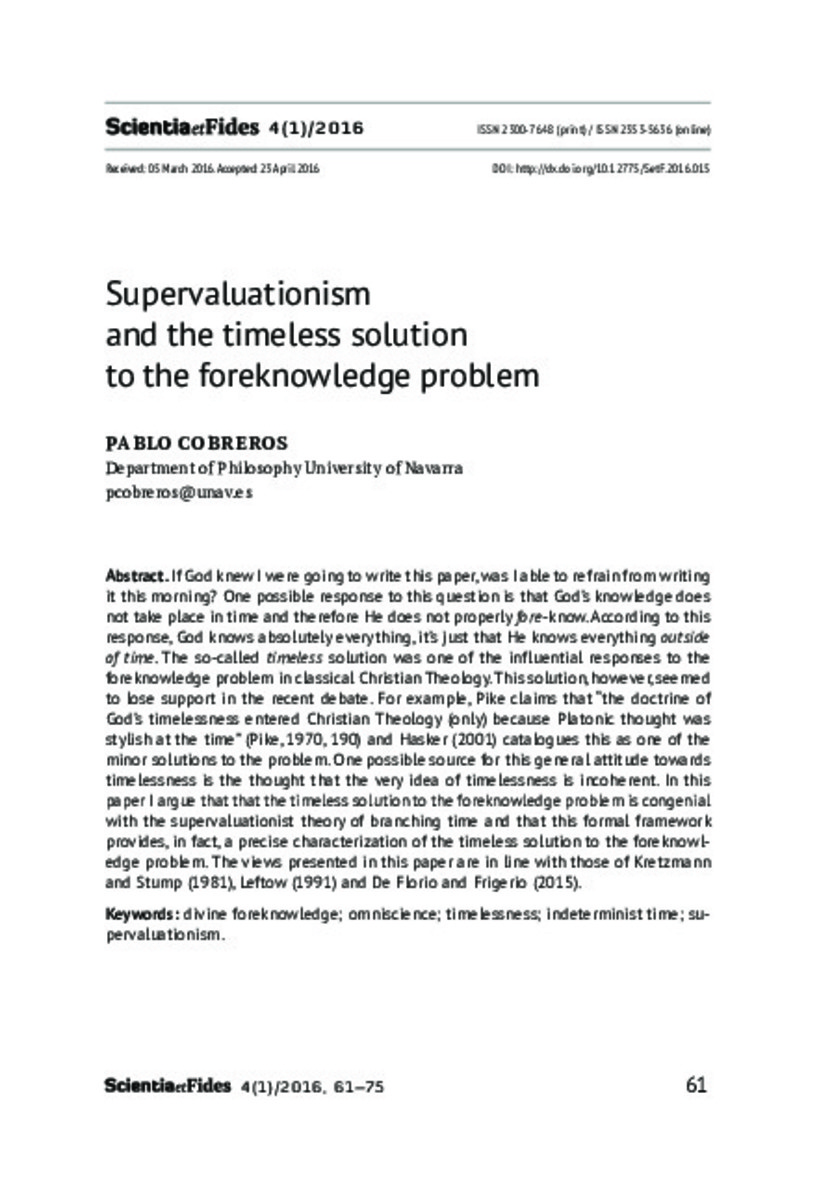Supervaluationism and the timeless solution to the foreknowledge problem
Palabras clave :
Supervaluationism
Indeterminist time
Omniscience
Divine foreknowledge
Timelessness
Fecha de publicación :
2016
Editorial :
Servicio de Publicaciones de la Universidad de Navarra
Cita:
Cobreros, P. (2016). Supervaluationism and the timeless solution to the foreknowledge problem. Scientia et Fides 4, nº 1, pp. 61-75
Aparece en las colecciones:
Estadísticas e impacto
0 citas en

0 citas en

Los ítems de Dadun están protegidos por copyright, con todos los derechos reservados, a menos que se indique lo contrario.







